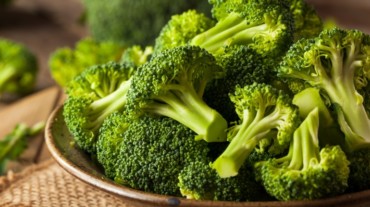
Most memory issues, according to Ayurveda, are associated with the Kapha Dosha, which is known for its dense, thick, mushy, and sticky characteristics. On the ‘film’ of the brain’s white matter, or Tarpaka, a sub-dosha of Kapha, are images, experiences and sensations. The brain and other nerve tissue are then nourished and protected by this unique tissue.
When one has Kapha stagnation or low Kapha Dosha, it causes heavy sensations and foggy thinking. An example of high Kapha is having high triglyceride levels (or blood fat), which could result in a thick, oily quality of the blood, resulting in a slow flow of blood over the blood-brain barrier.
Memory-related issues are often translated into memory problems such as Alzheimer’s, dementia, or increasing benign forgetfulness or short-term memory loss. Women going through menopause can experience temporary changes in their memory, which is restored once the hormones are balanced.

So how do we know when one has poor memory? Well, here are some initial hints:
Ayurveda believes that all three Doshas in the brain must work together for learning, processing, and recalling information. An imbalance in any one of these can cause memory, concentration, and mental clarity problems. Balancing your Doshas and having a Sattvic state of mind is a great step to cure memory-related issues. This is done by increasing positivity, and stimulating the heart tissues. Work on boosting our brain functions with a correct thought process and increasing blood circulation to the brain.
Follow a special nourishing diet, consisting of the below for better brain health!
Curcumin in turmeric is a powerful antioxidant and anti-inflammatory to boost brain functions. This improves memory and relieves stress and anxiety.
Broccoli is filled with vitamin K, which is very essential for improving memory. It has anti-inflammatory and antioxidant properties that prevent brain cells from getting damaged. It is advisable to use a minimum of 100 grams of broccoli 3-4 times a week in any form, in any meal.

Pumpkin seeds have multiple nutrients like magnesium, copper, iron, and zinc, which are essential for better brain functions and improved memory. Zinc works in nerve signalling, magnesium is essential for learning and memory, and copper helps control nerve signals. Low copper levels in the body can lead to neuro-degenerative disorders such as Alzheimer’s. One must have 2 tablespoons of pumpkin seeds along with any meal.
Consuming nuts will improve your heart and keep the brain functions healthy and protects cell membranes from free radical damage. It improves cognition and helps prevent neuro-degenerative diseases. You can have a handful of almonds and walnuts daily.
Select Topics of your interest and let us customize your feed.
PERSONALISE NOWIncluding vitamin C foods in your daily diet are very crucial as it plays an important role in improving mental health. Vitamin C is a powerful antioxidant that supports brain health as you age. You can have 2 amlas per day. Some other foods which can be included in the diet can be bell peppers, guava, or kiwi.
Along with a dietary change, one should also change their lifestyle. Have positive thinking, remember to ‘forgive and forget’ and do yoga and meditation. Do not suppress natural urges and avoid negative thoughts and alcoholic drinks.